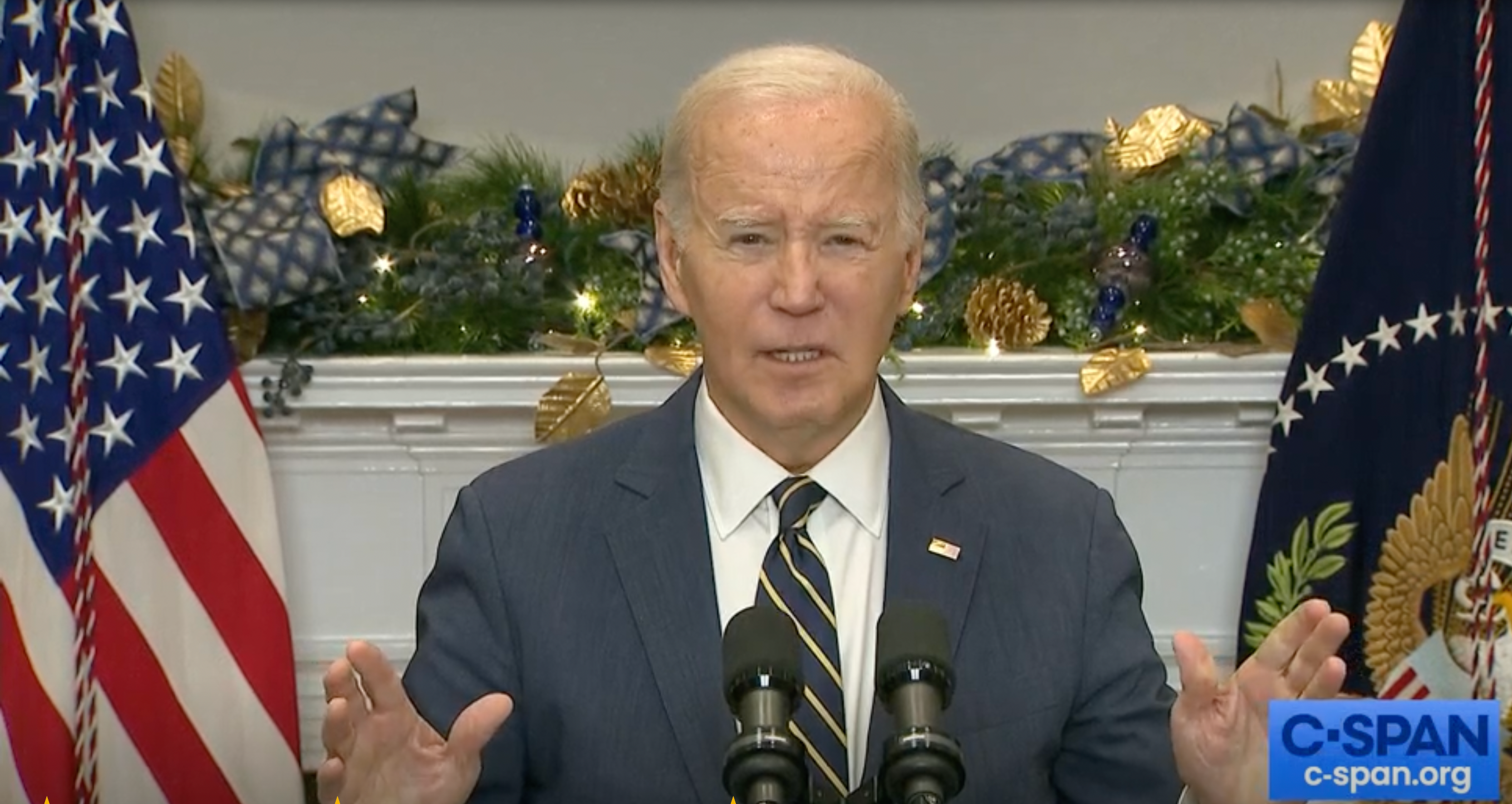UPDATE 12/6/23, 5:30 p.m. : The Senate fails to approve the supplemental package by a vote of 49-51.
President Joe Biden implored the Senate to vote in favor of his proposed supplemental package, saying that “history is going to judge harshly those who turn their back on freedom’s cause,” during remarks delivered in advance of an expected vote on the legislation later on Wednesday.
The $106 billion spending bill includes funds for Israel and the Asia-Pacific, but Biden’s nine-minute speech was almost entirely dedicated to the imperative of supporting Ukraine in their war effort. The supplemental contains approximately $61 billion in aid for Kyiv.
“Congress needs to pass supplemental funding for Ukraine before they break for the holiday recess,” Biden said. “It’s as simple as that.”
His administration earlier this week urged Congressional leaders to pass this bill, telling them that the Pentagon was close to exhausting all of the funds that had been allocated to Kyiv.
Biden spent much of his remarks criticizing members of the Republican Party who have soured on giving more aid to Ukraine, and who have insisted that Democrats acquiesce to their demands on border security policy in exchange for their support for the supplemental.
“Extreme Republicans are playing chicken with our national security, holding Ukraine’s funding hostage to their extreme partisan border policies,” the president said, calling the cessation of U.S. support “the greatest gift [Russian President Vladimir Putin] could hope for.”
But Biden did not address many of the concerns that Republicans have raised about continuing aid to Ukraine, concerns that were reiterated in a statement that Speaker of the House Mike Johnson (R-La.) made earlier this week, which read, in part:
“The Biden administration has failed to substantively address any of my conference’s legitimate concerns about the lack of a clear strategy in Ukraine, a path to resolving the conflict, or a plan for adequately ensuring accountability for aid provided by American taxpayers.”
“Part of winning approval from Congressional doubters on Ukraine is to present a viable strategy for ending the war that amounts to more than Biden's vague 'as long as it takes' approach. Biden has not done that,” George Beebe, director of Grand Strategy at the Quincy Institute tells RS. “He is not proposing any shift in America's strategy to account for the failure of Ukraine's counteroffensive to break through Russian defenses. Ukraine is simply not going to be able to drive all Russian forces off all Ukrainian land.”
Biden nonetheless appears determined to stay the course, saying that he is “not prepared to walk away.”
In Biden’s telling, the failure to arm Ukraine would allow Putin to continue to march through Europe — raising the risk of direct confrontation between Washington and Moscow — while also emboldening other would-be aggressors elsewhere. “The entire world is watching,” Biden said.
Beebe, who has made the case for a shift to a “defensive strategy” for Ukraine, says that the administration’s current approach is not sustainable, noting that both Ukraine’s reserves of manpower and political patience in Washington and European capitals are dwindling.
“We must couple this defensive strategy to a diplomatic offensive aimed at bringing about a stable armistice, because Ukraine is unlikely to weather a long war of attrition with much more populous and militarily capable Russia,” Beebe tells RS. “Biden, however, appears to be ruling out any diplomatic compromise, insisting that Putin and Russia must be held accountable for their crimes. Biden's stay-the-course approach is a formula for failure.”
The Senate is slated to vote on the supplemental package on Wednesday, but the bill is expected to fail, given the lack of progress on border security negotiations.














